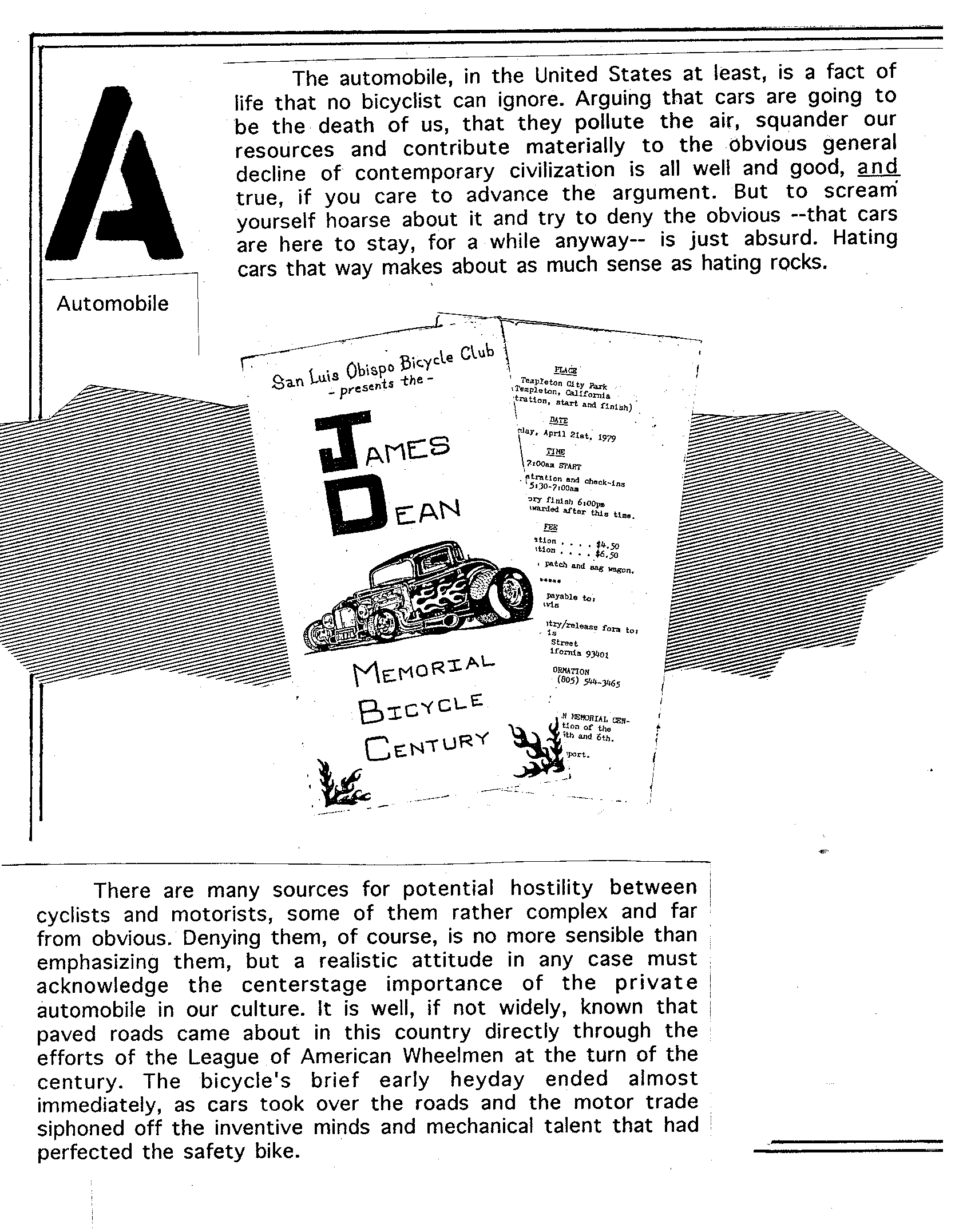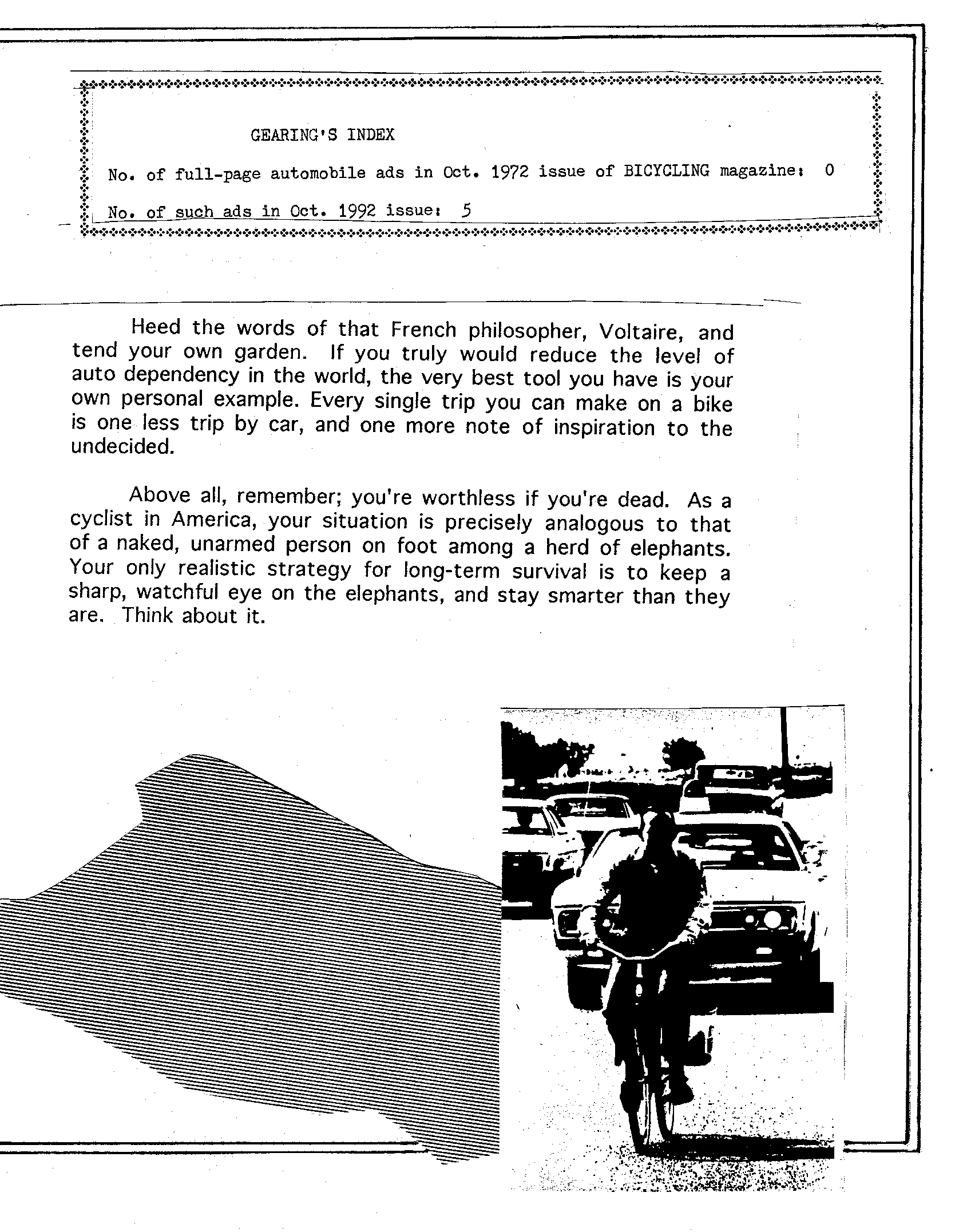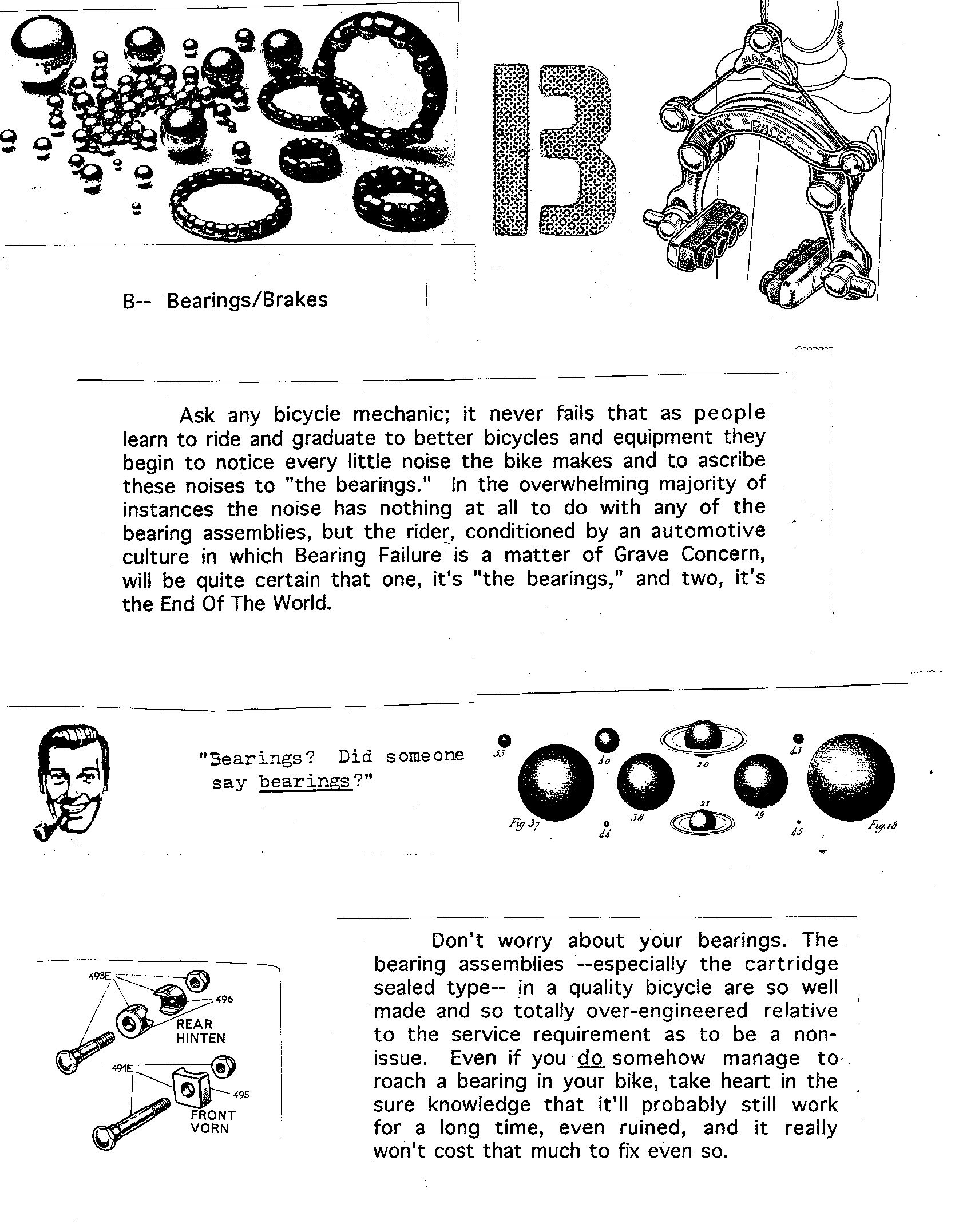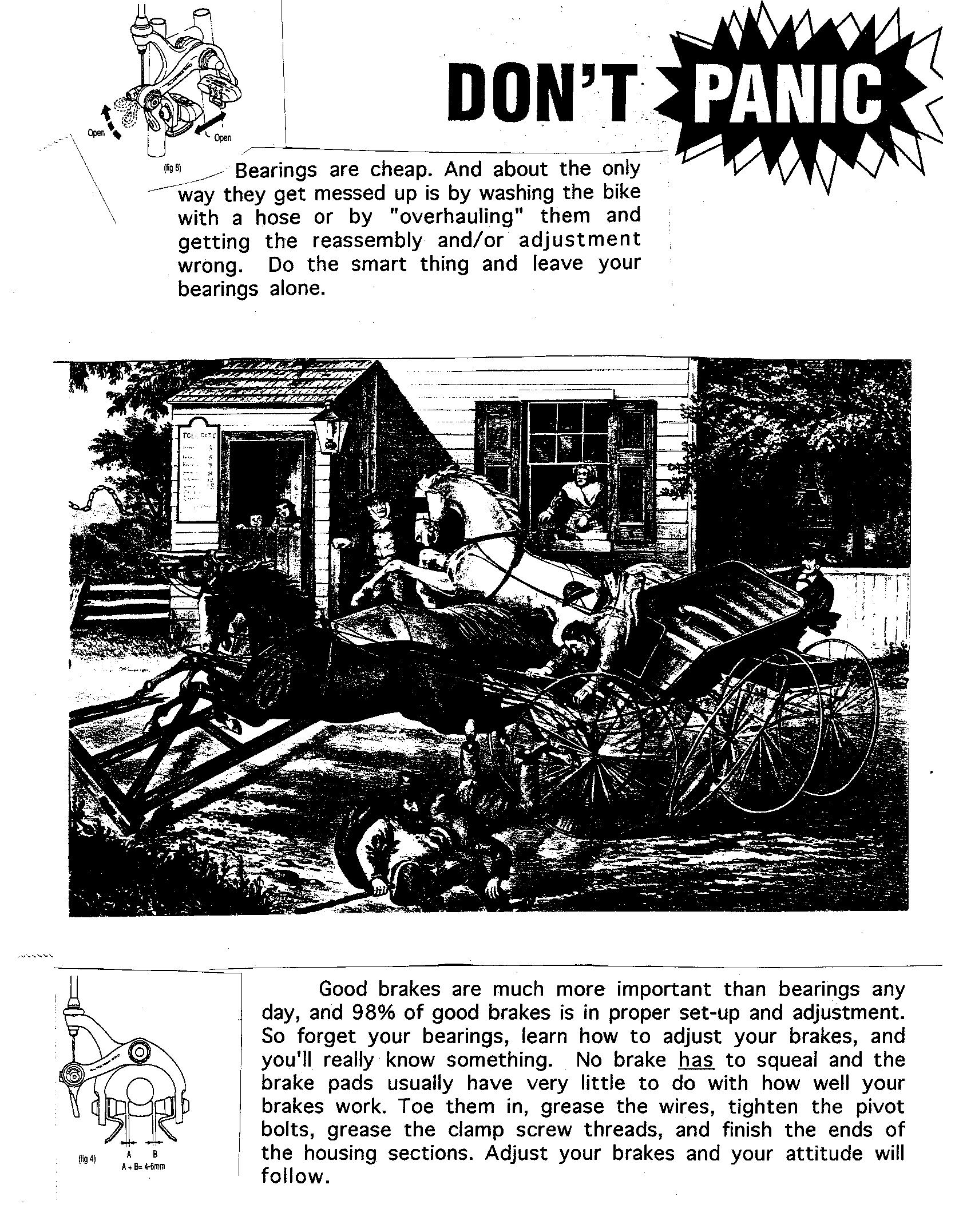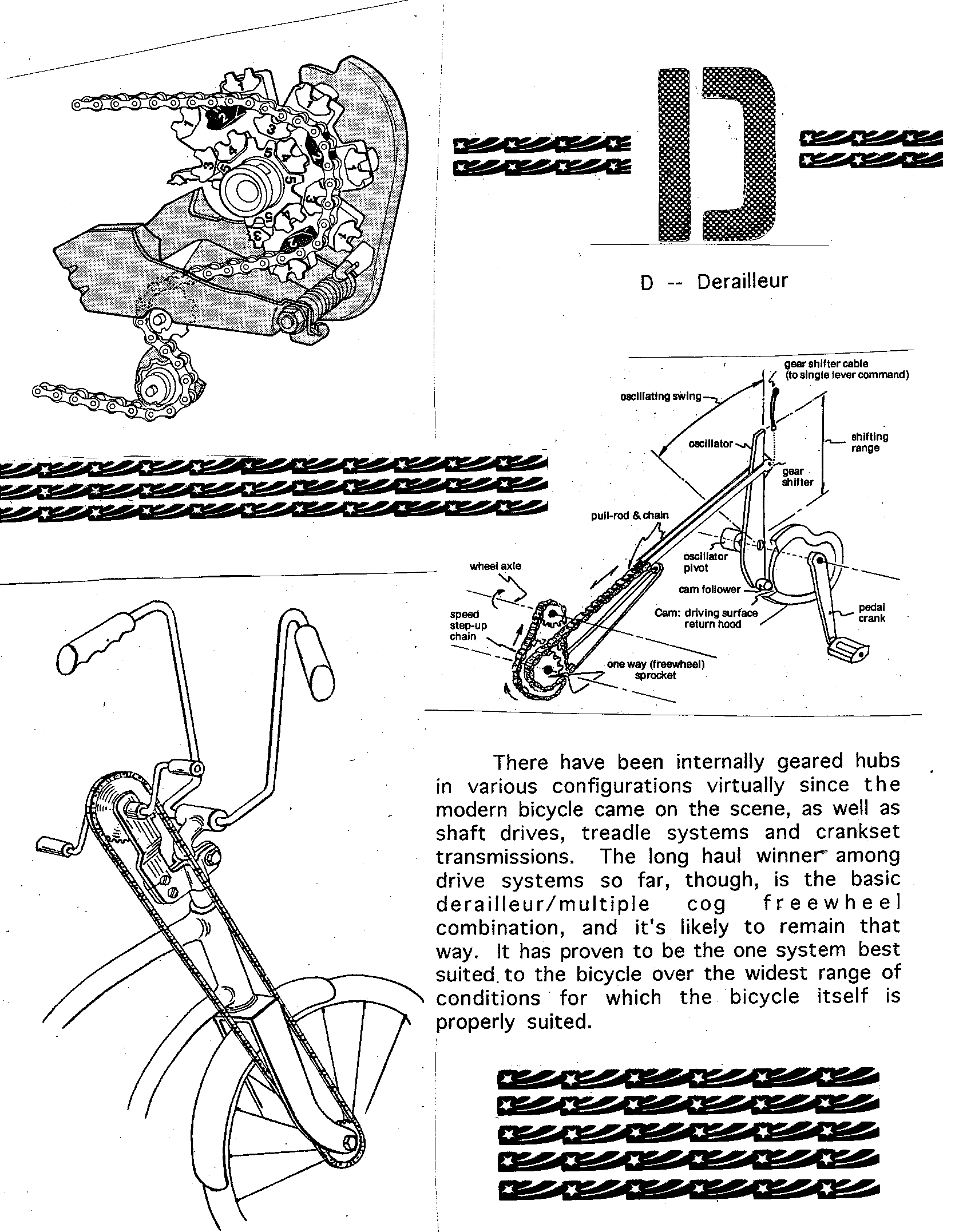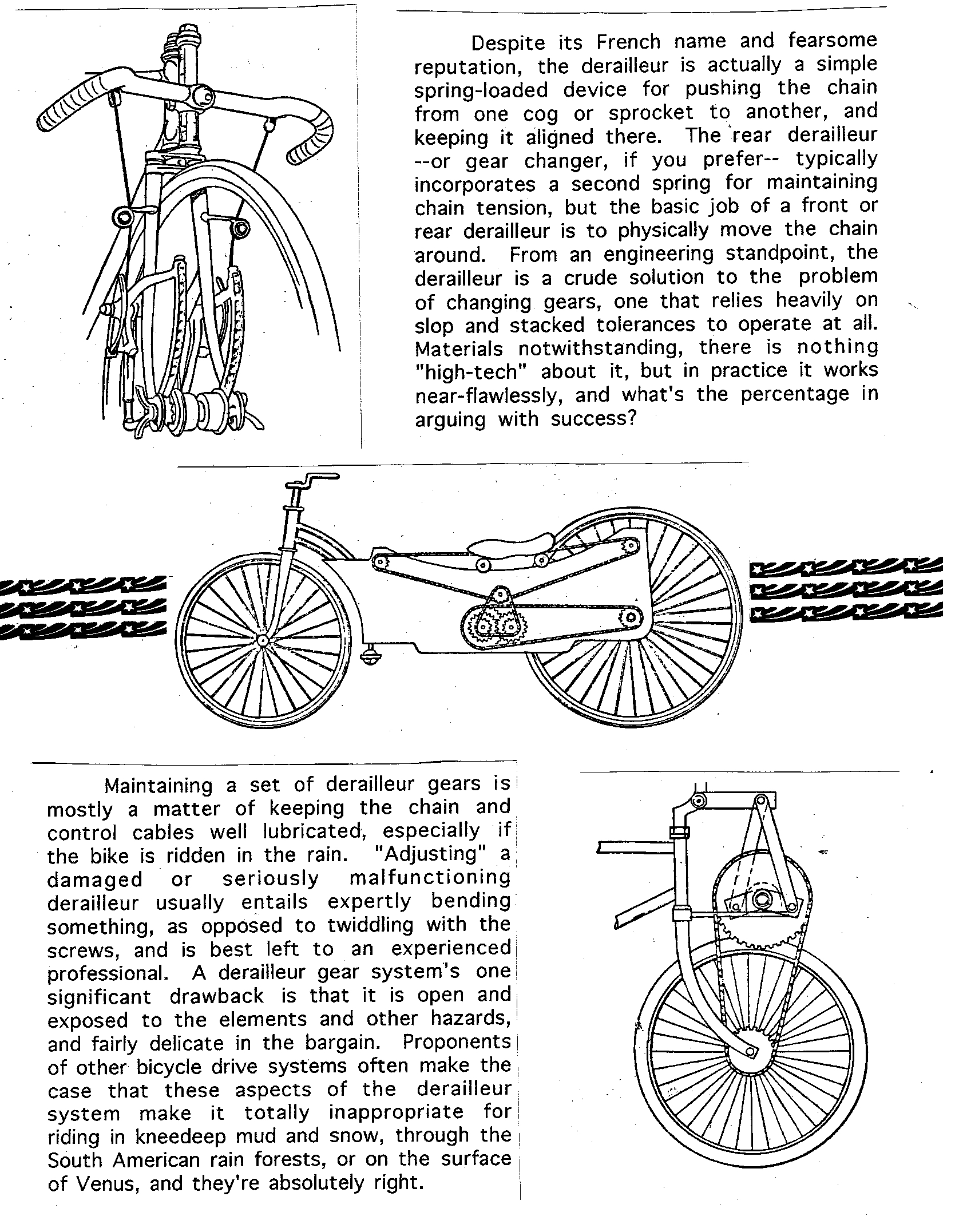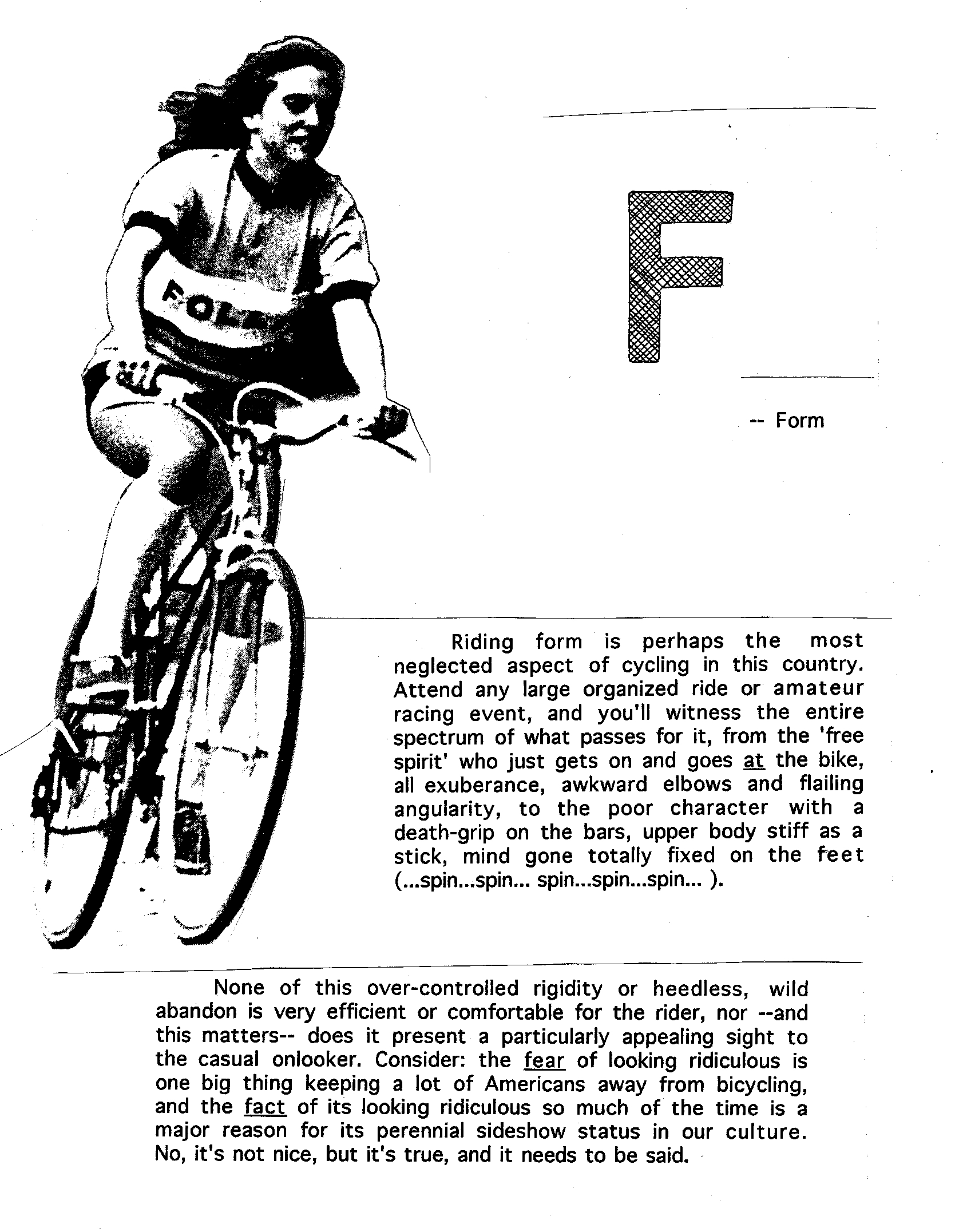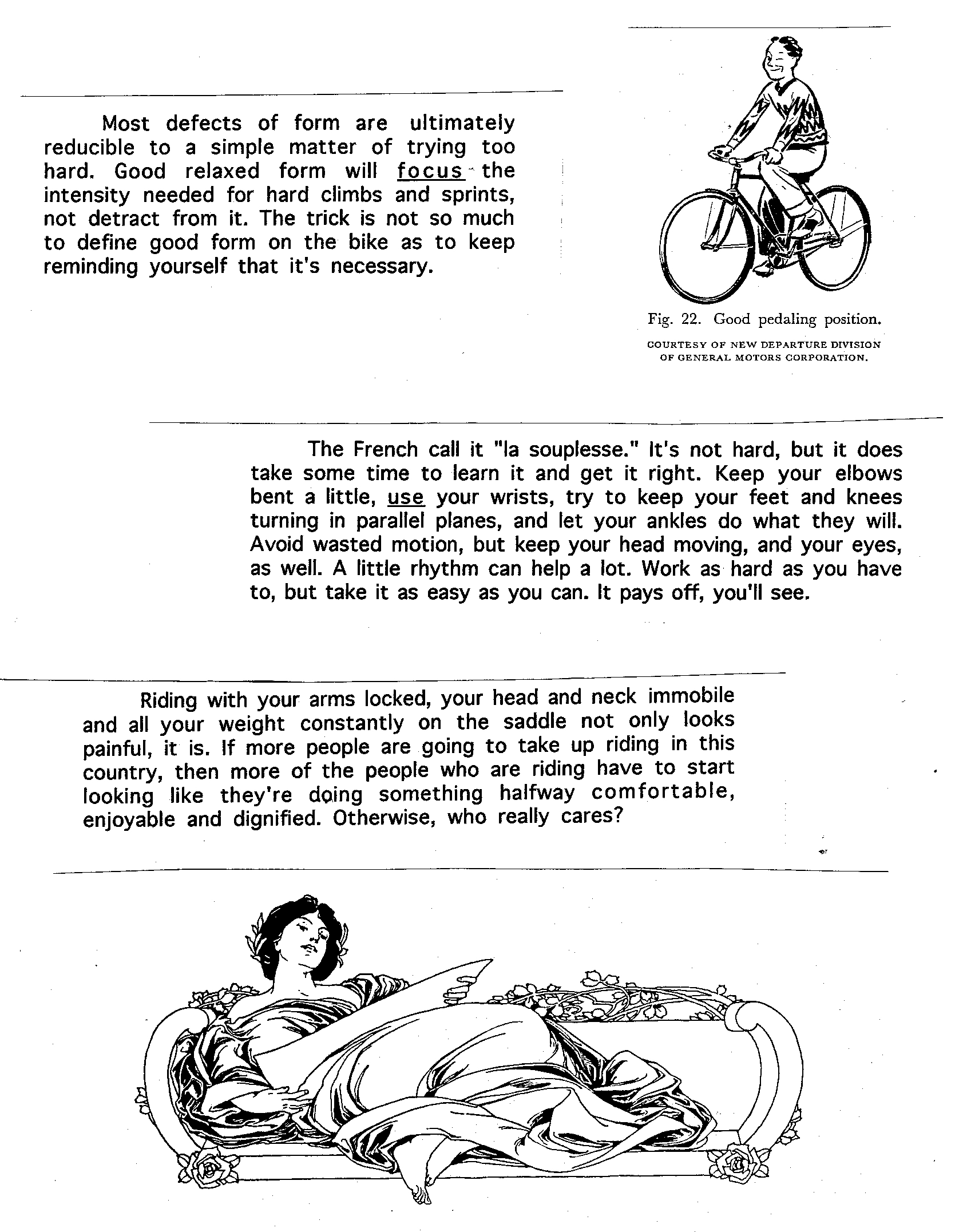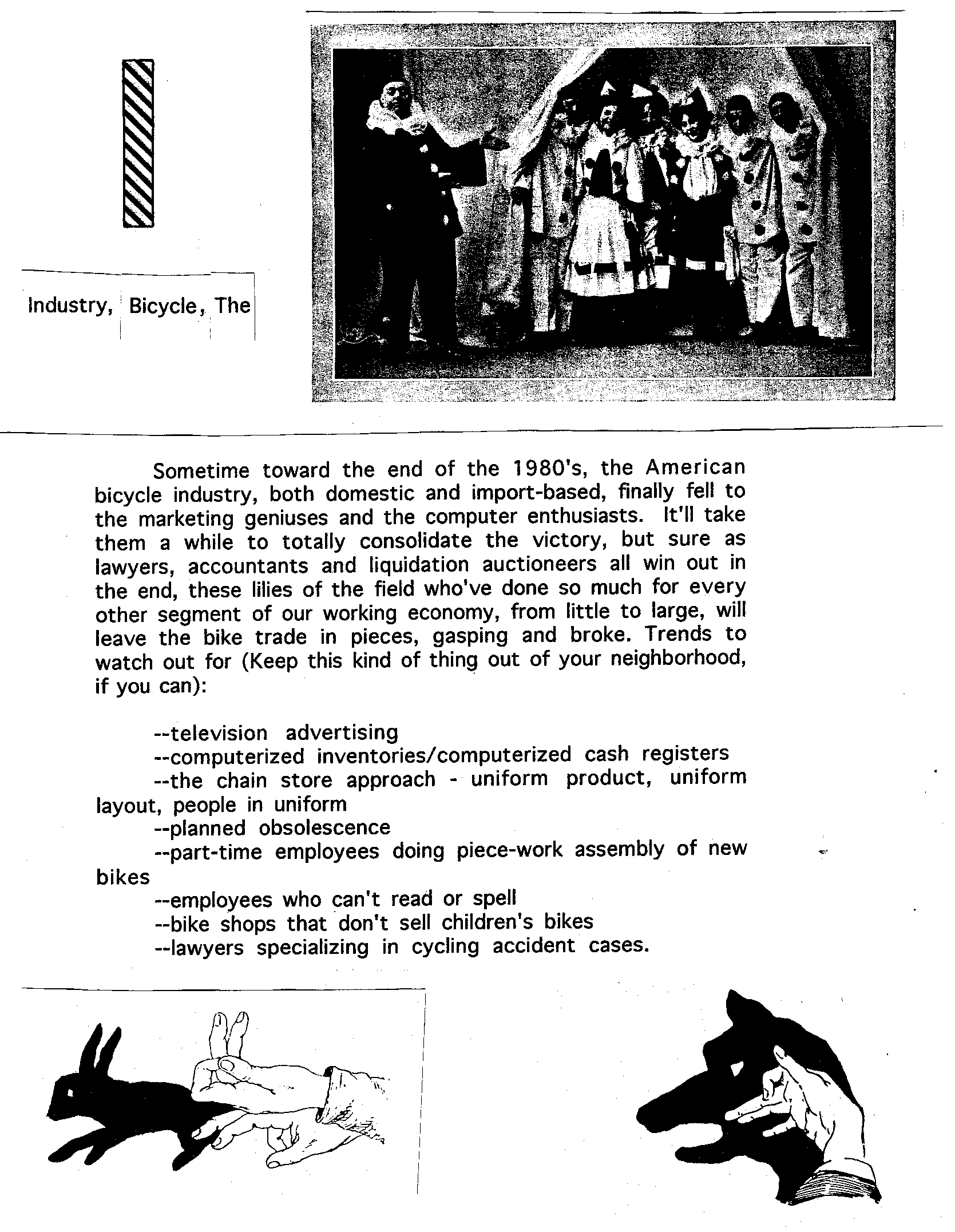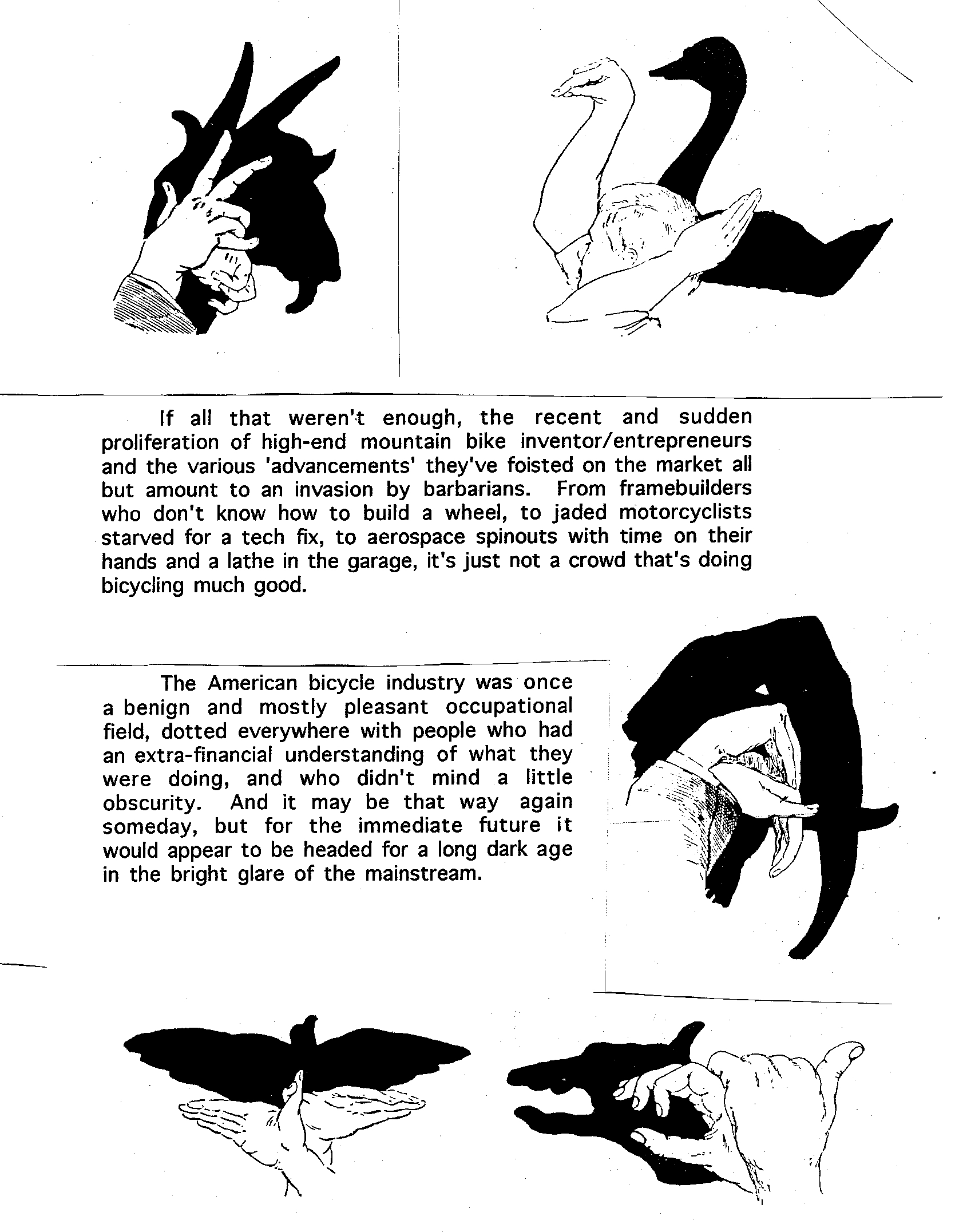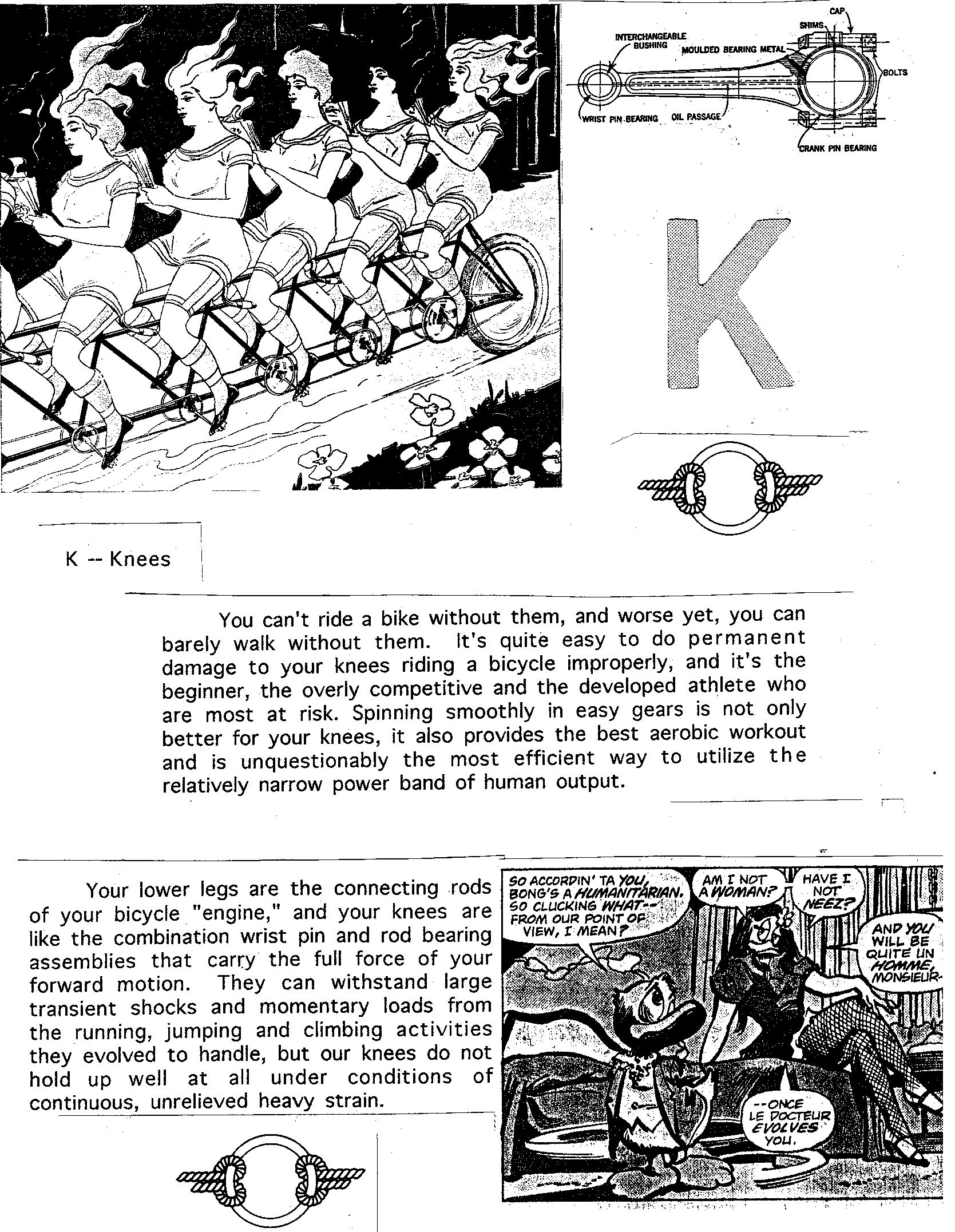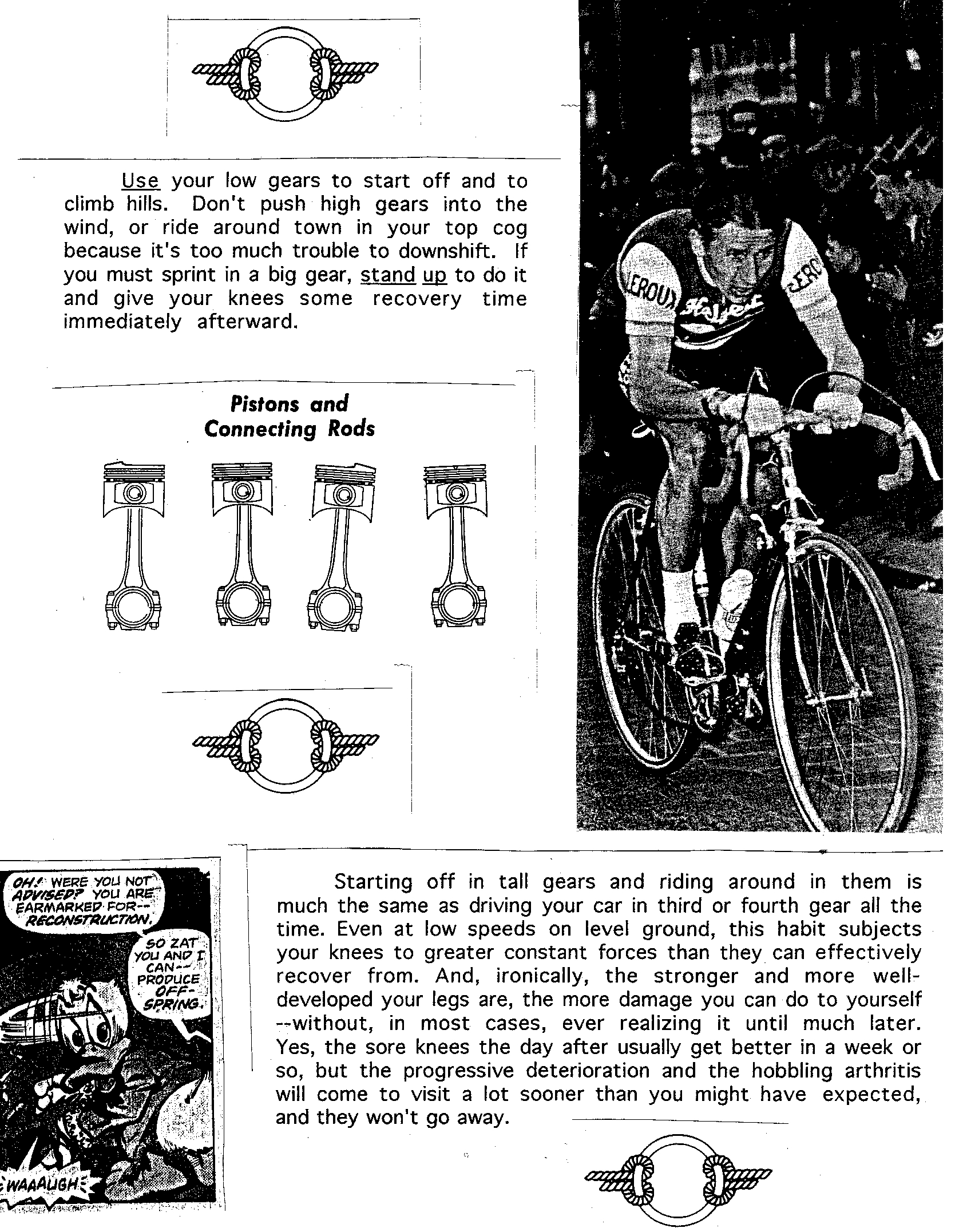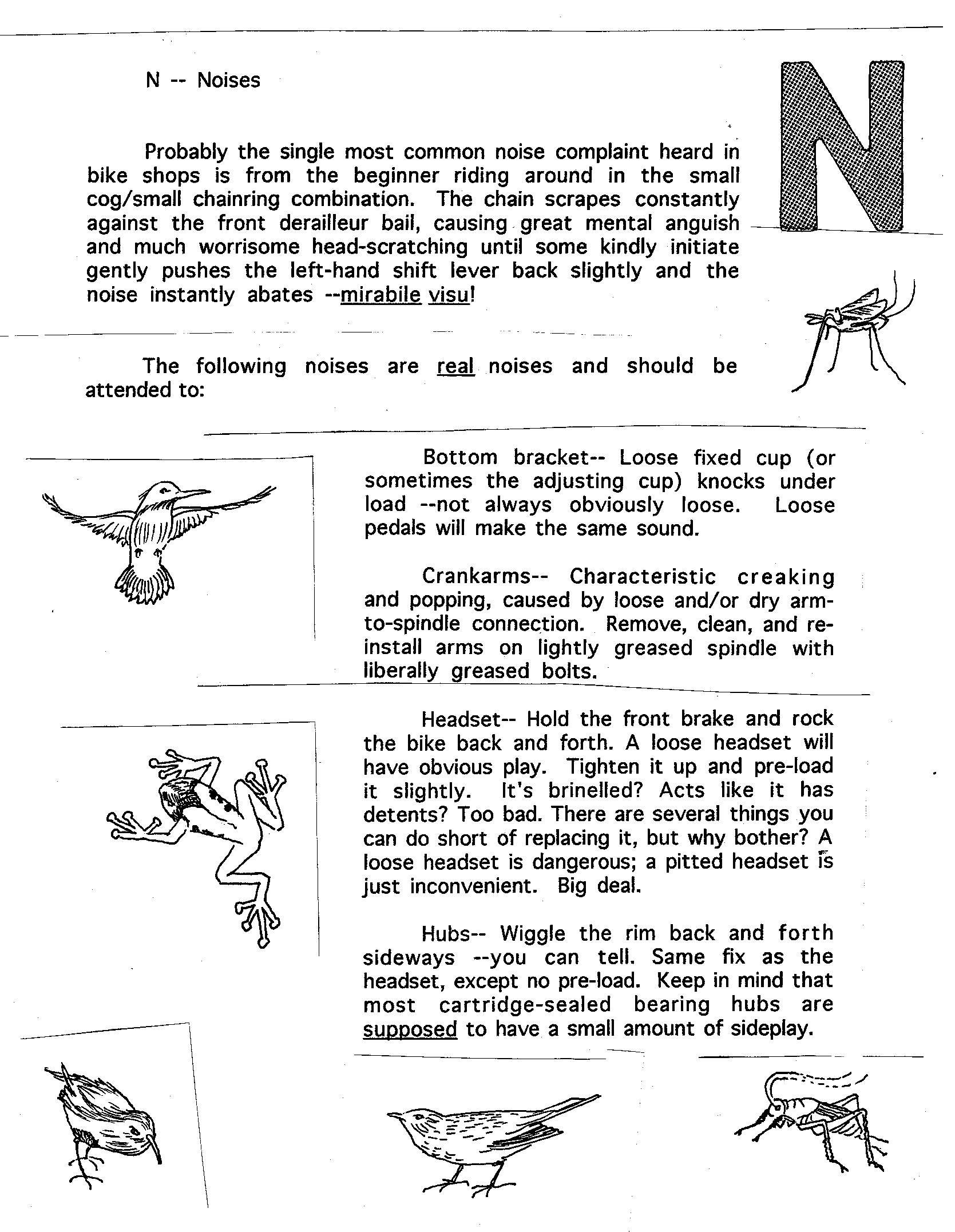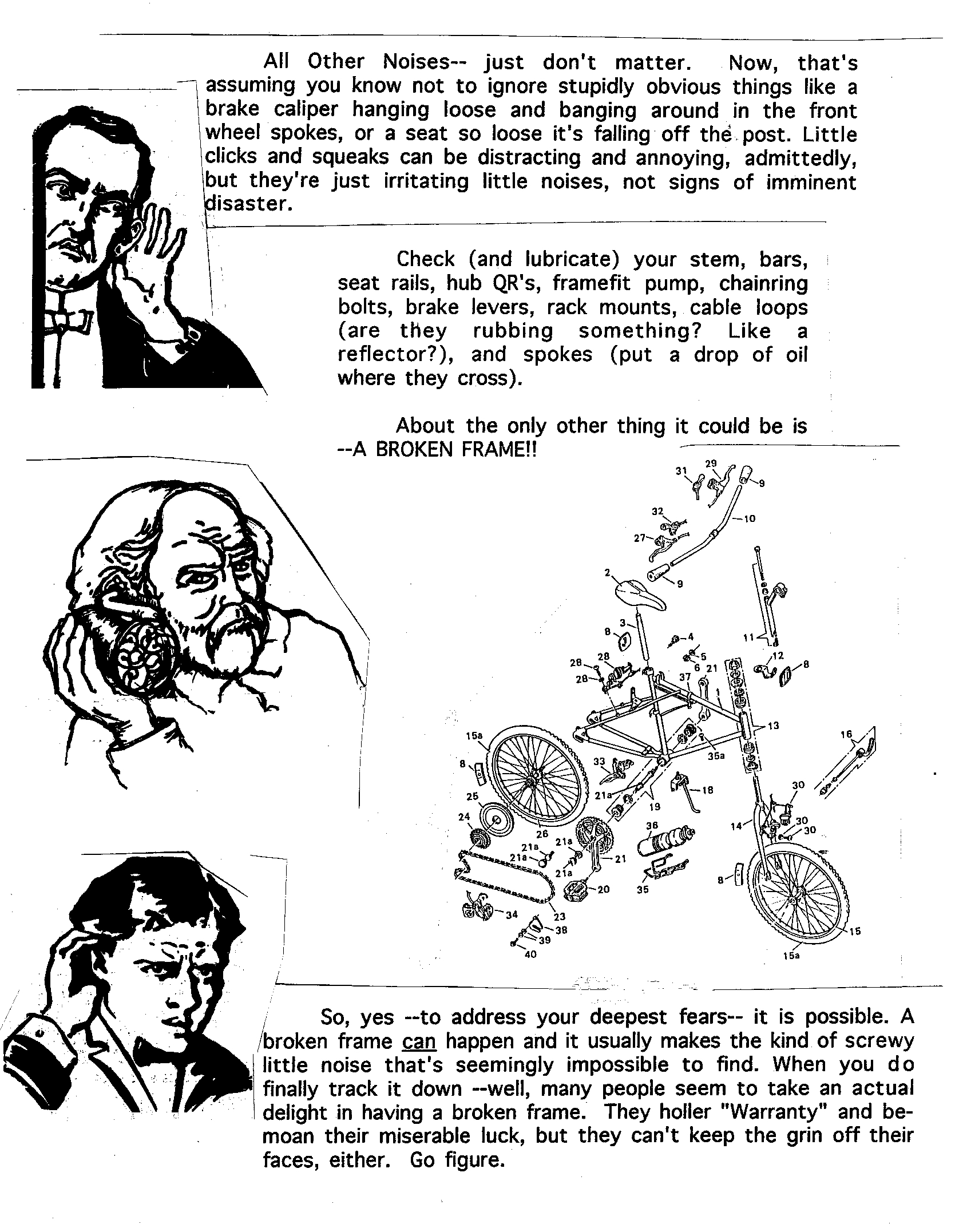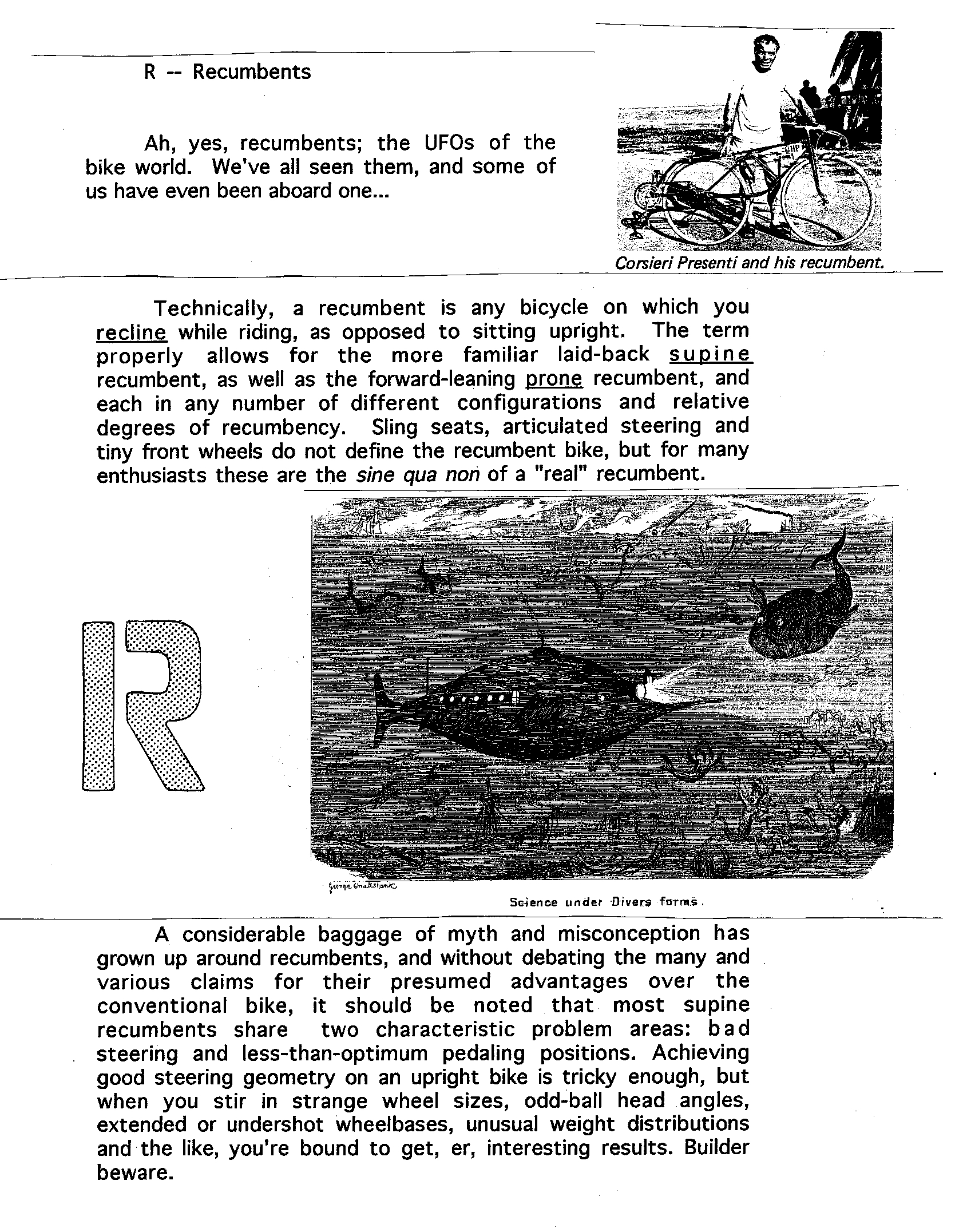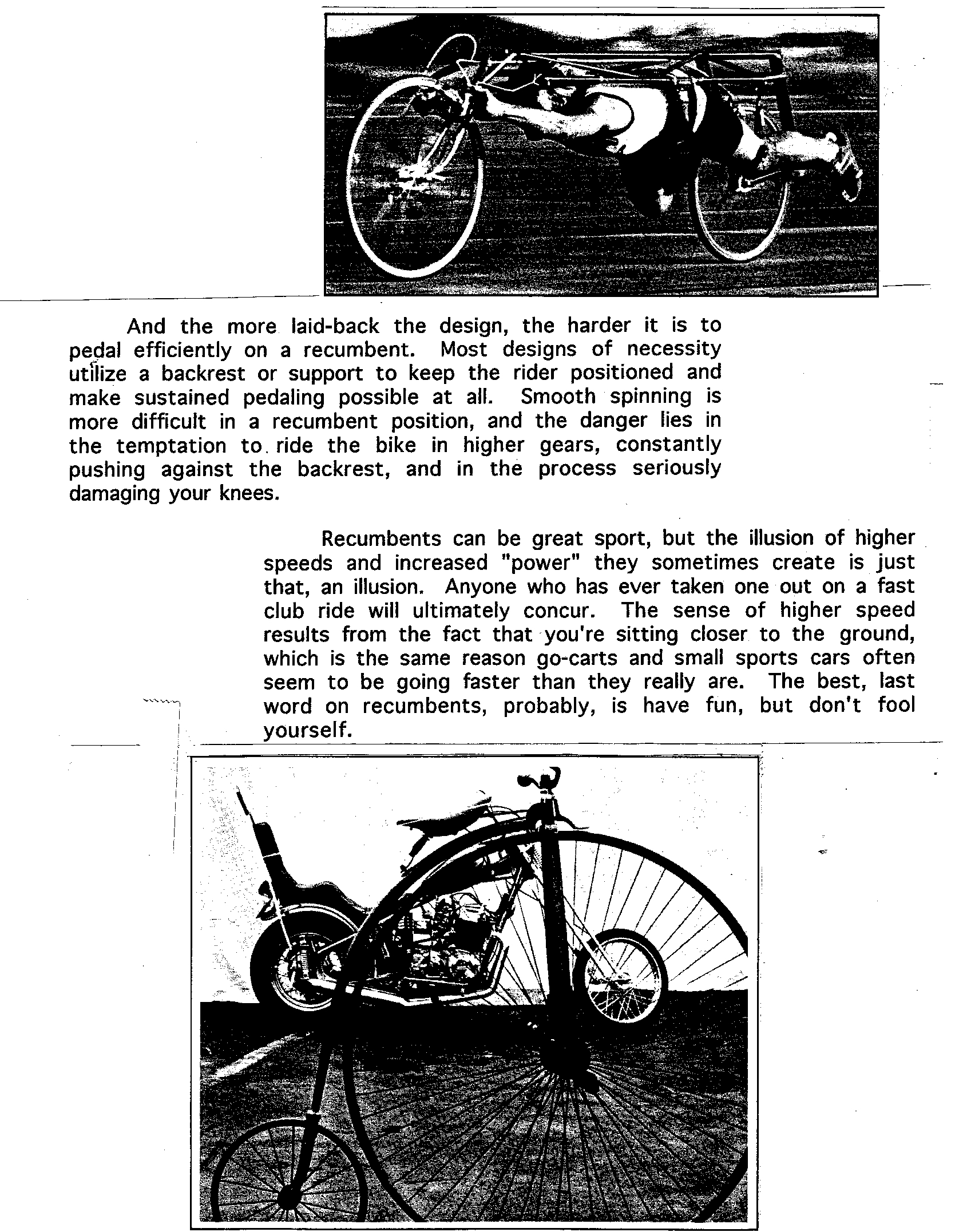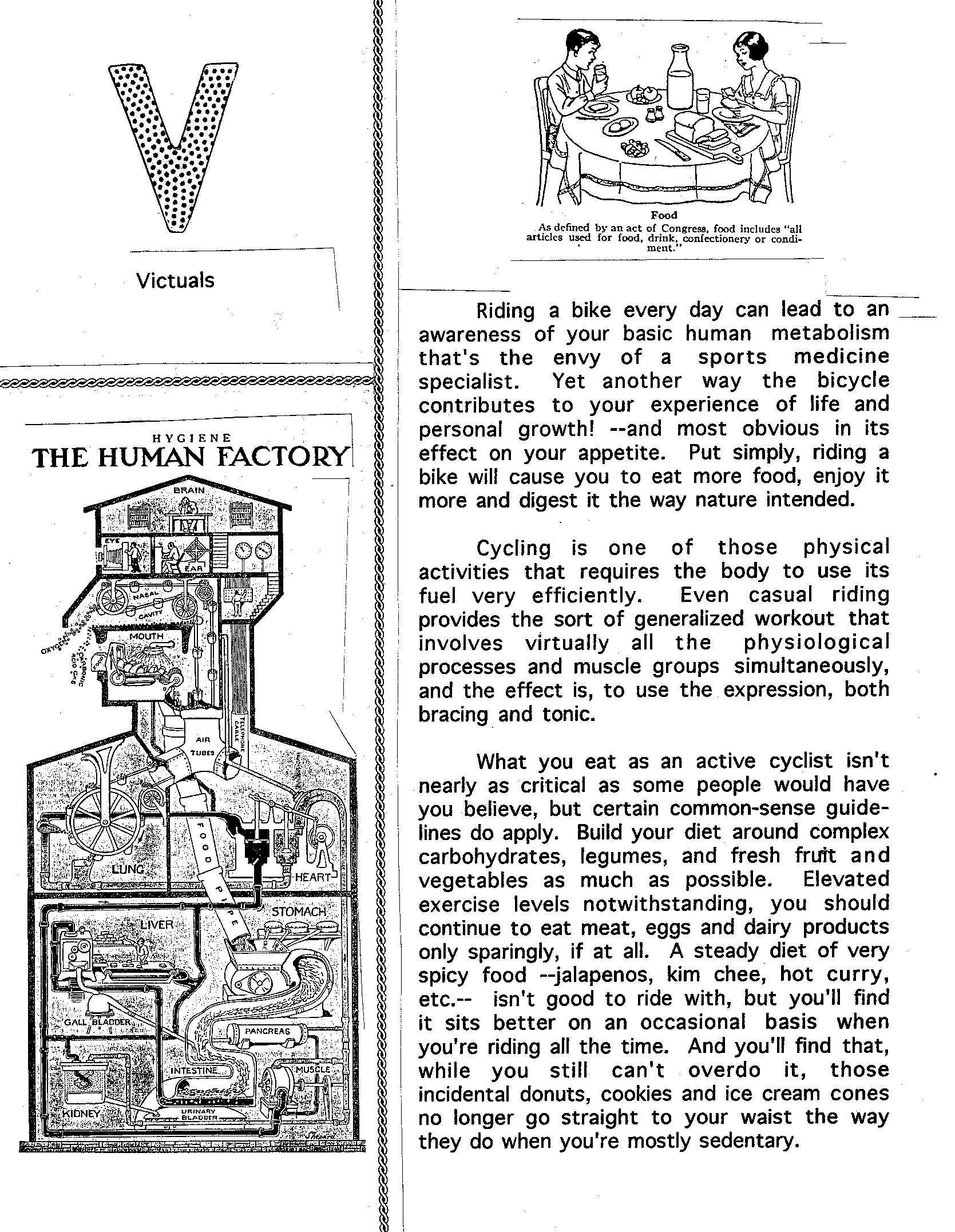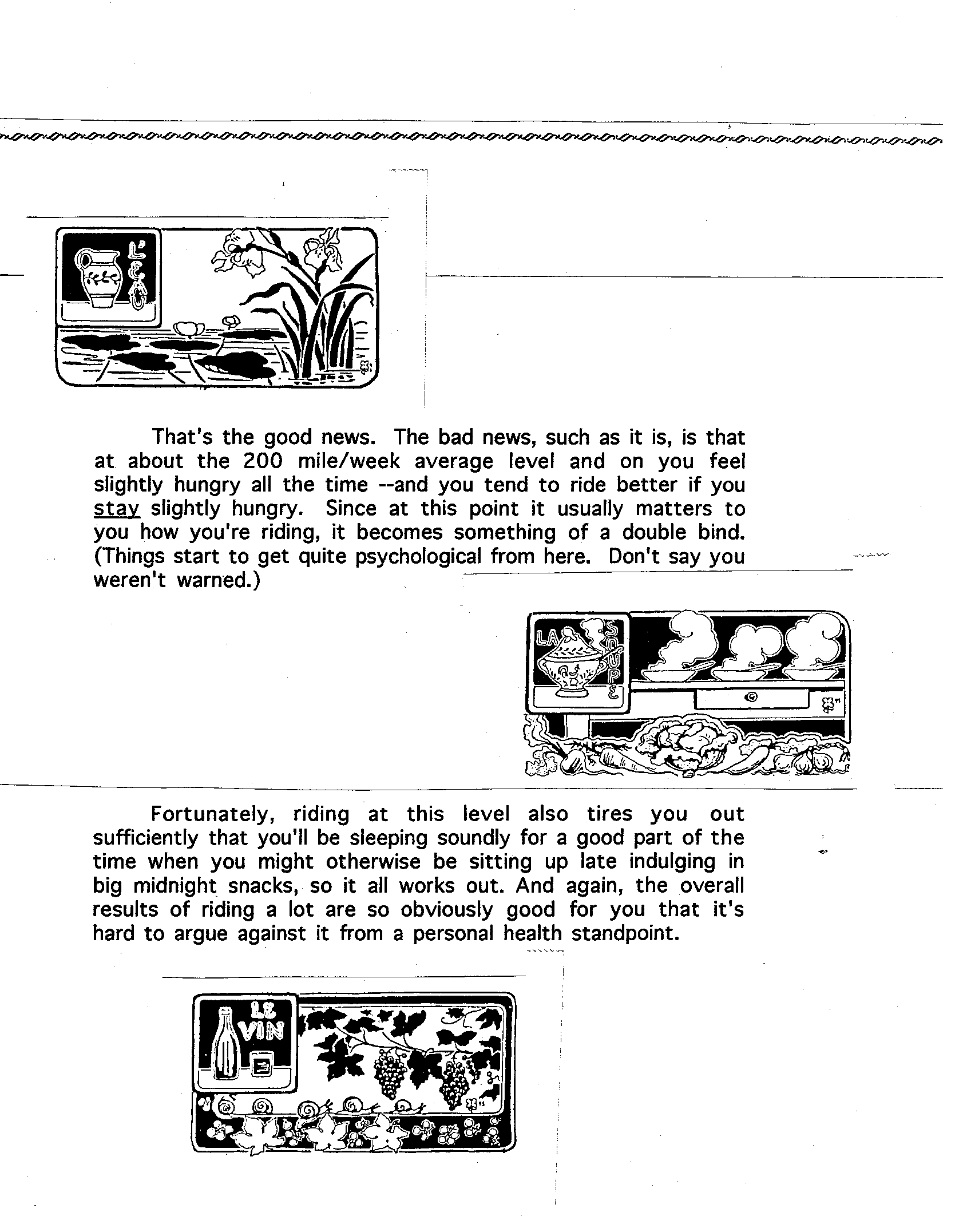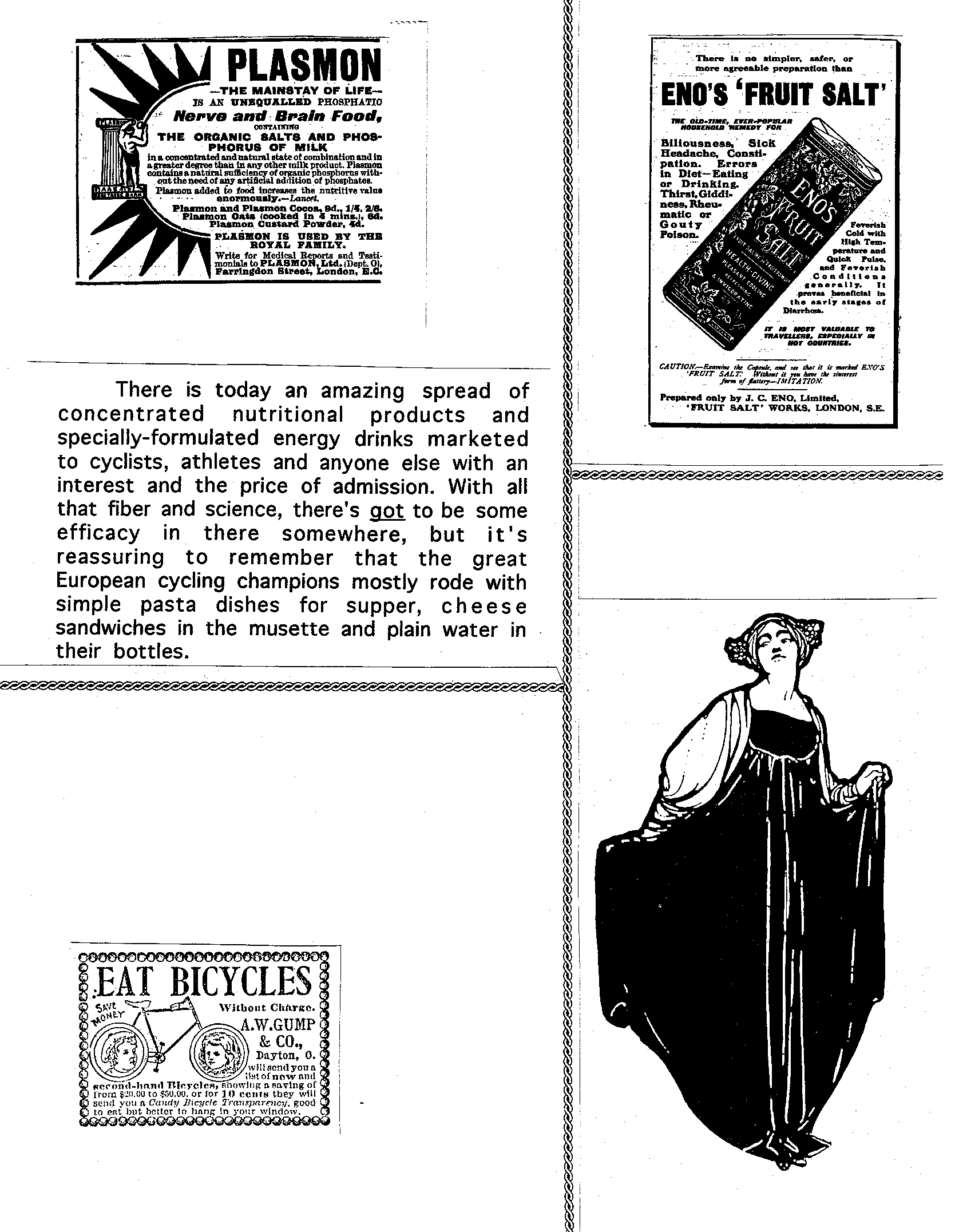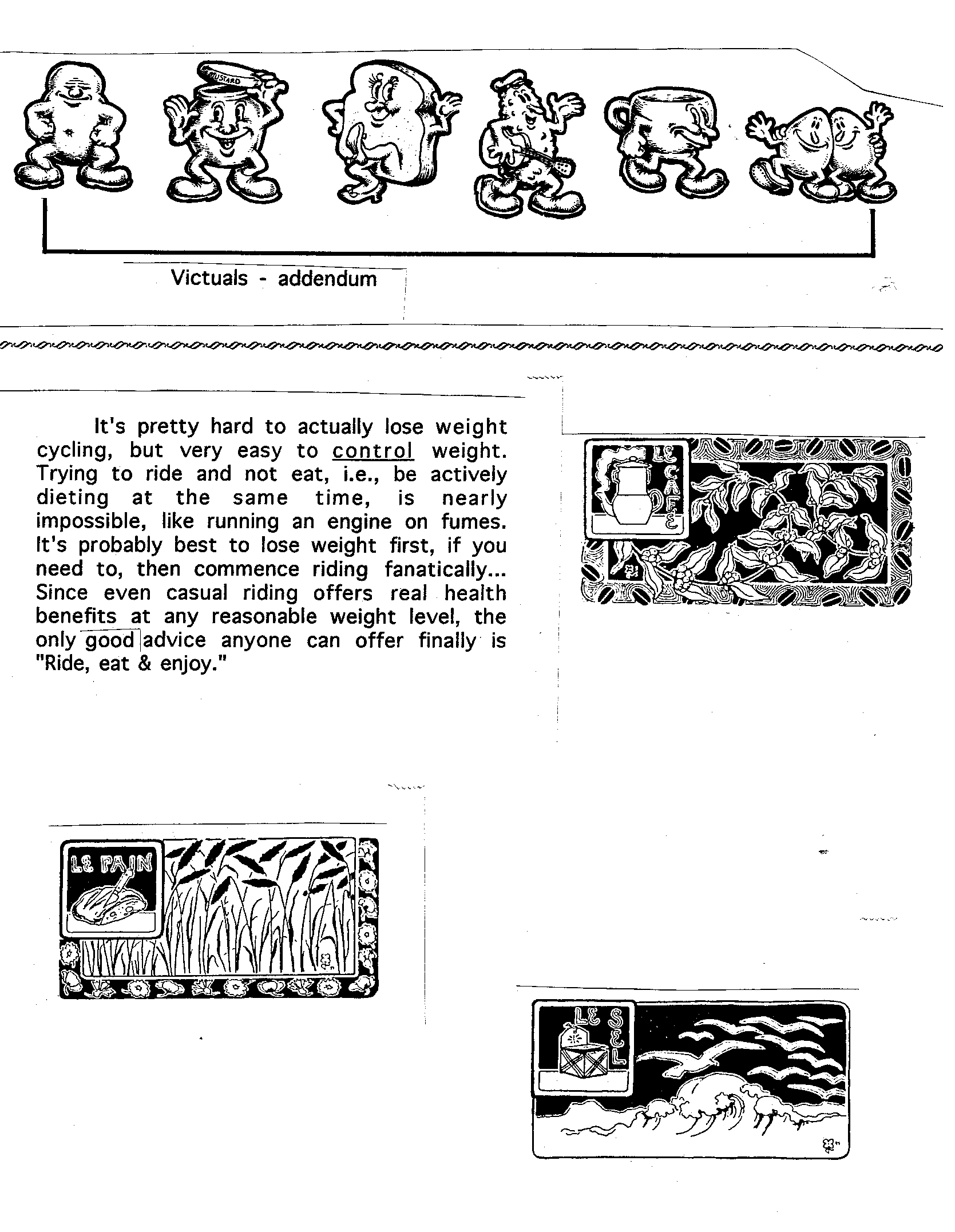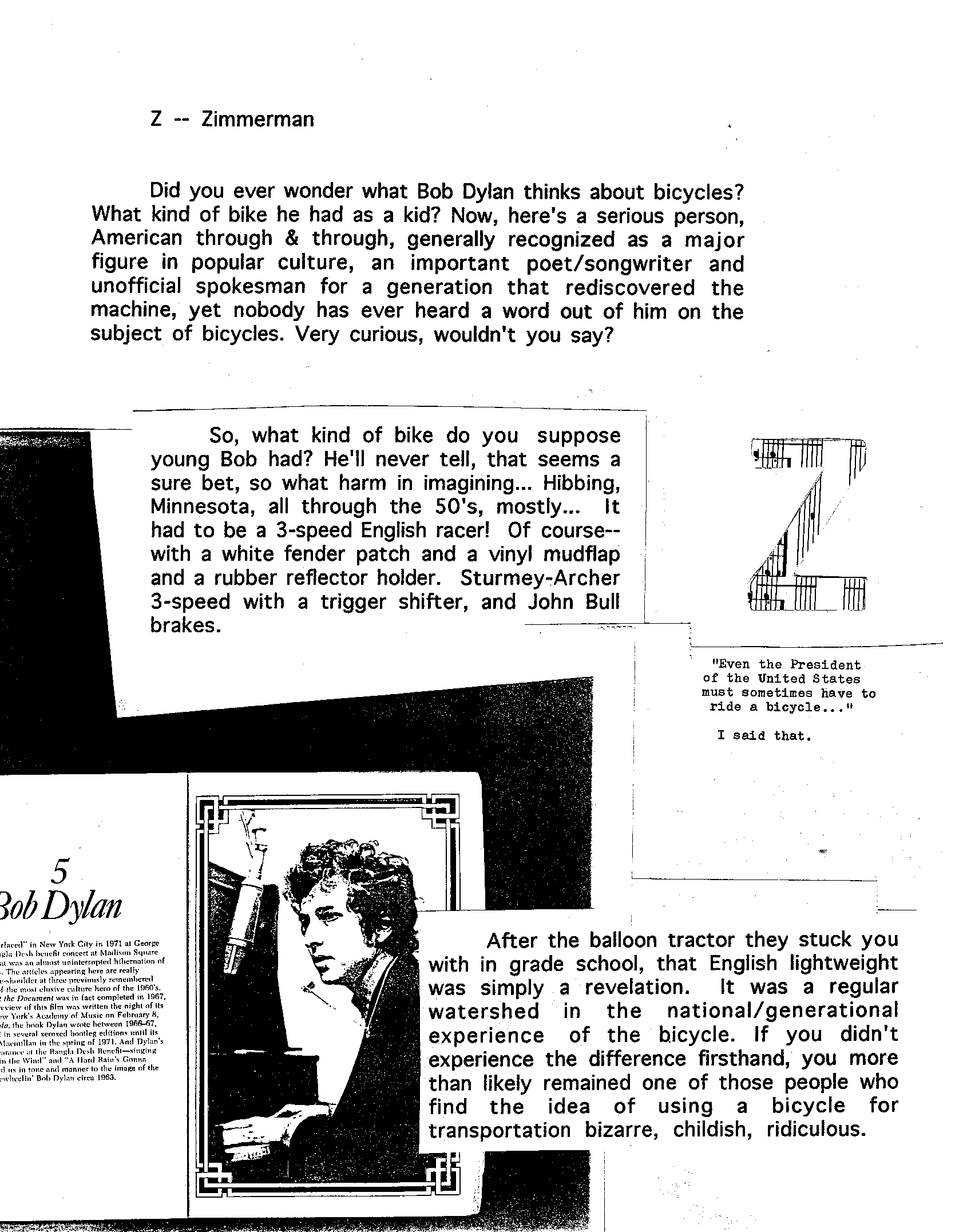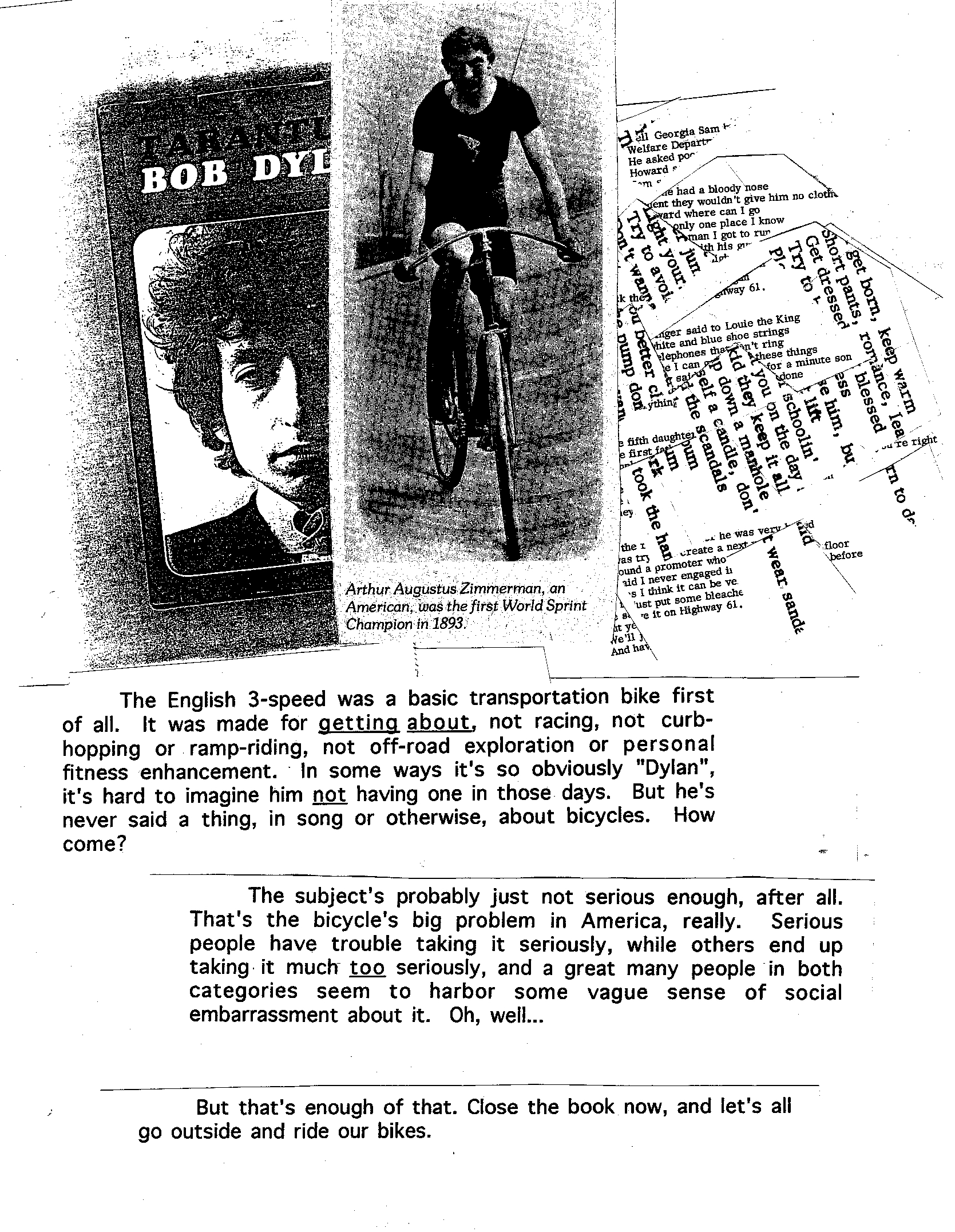The ABC's of Bicycling [From BA 43-200 – BA 43-500]
"Just riding a bike regularly, it seemed to me, could do more to get peoples' heads on straight than any amount of psychotherapy, drugs, behavior modification, spiritual counseling, social engineering and high-minded legislation was ever going to accomplish."
by Michael Compton
Author's Introduction 1/10/93
Twenty years ago I was working as a fairly well-paid technical writer and Research Assistant with the California State Department of Mental Health. I became interested in the bicycle at that time for a variety of reasons, and gradually began a career shift into the retail bike trade. This was, to put it plainly, a big step down in terms of income, "status" and other such considerations, and a hard move to explain and defend to some of my friends and coworkers.
It didn't help that my decision was partly based on a deep personal conviction that the bicycle--and nothing more than the bicycle--could be a powerful tool for individual and social transformation. Just riding a bike regularly, it seemed to me, could do more to get peoples' heads on straight than any amount of psychotherapy, drugs, behavior modification, spiritual counseling, social engineering and high-minded legislation was ever going to accomplish.
So call me naive, but here it is all these many years of a working life later, and I still believe the bicycle can save the world. It will not, however, be able to do so, if certain widely entreched and pernicious attitudes remain unchallenged, and there you have the essential sub-text of this modest offering.
The bicycle's great liability in American is that it is a profoundly simple machine in a society all but totally gone on "high-tech" mystification, computerized minutiae, free-market "rationalization" and the largely unnecessary over-complication of virtually everything from can openers to contract agreements. Our many cultural imperatives regarding the pursuit of speed, power, competition, control, and dominance all stand, finally, at a pretty far remove from the bicycle and its plain lessons of common sense and humble purpose. I don't mean to be a scold—I'm only a bicycle mechanic, after all—but these are not, for the most part, lessons that people in this country seem to want to learn.
Such fundamental values as conservation, practicality, economy of means, self-sufficiency and individual responsibility get constant lip service from every quarter, but see precious little direct application in a modern world that is, quite simply, designed to work better without them. I hesitate to suggest that the bicycle is actually subversive of the consumer society and lifestyle, but I do submit that if offers anyone dissatisfied with the existing order an alternative with implications that go far beyond the immediate issue of personal transportation. Of course, the singular beauty of the bicycle is that it does provide for your everyday personal transportation, even as it nudges your mind toward a liberating new perspective.
The present effort was conceived as a primer on the subject for the thoughtful reader who doesn't ordinarily give the subject a thought. People who ride bikes out of economic necessity typically have more pressing concerns, such as grades, or survival, and those who ride purely for sport or recreation are usually, to be generous about it, caught up in the passion of elective activity. Much of what has been written about the bicycle has been written by and for this latter group, often with a distinct, even rigid, technical slant. I have not neglected the technical side here, but I hope to have informed my celebration of the bicycle as a machine with some awareness of its relevance to other aspects of our life and times.
We in the West, and in America particularly, have come to the beginning of a new era after a long period of unprecedented growth, expansion and invention. However unpopular it may be to say so, it is clear to any thinking person that this new era will be an era of limits. Neither the natural world of physical space and finite resources nor the over-strained fabric of our social relations will support the old ways of waste and exploitation any longer.
We can throw a fine tantrum, cling fiercely to our expensive toys and be dragged destructively kicking and screaming into the future—or we can stop, think and listen for a moment to that calm voice of dispassationate reason that is in fact the greatest achievement of our civilaztion. And if enough of us can be pursuaded to quiet down, act of our age, share the toys and get along, then perhaps we can all find the courage and the collective will to reach up and switch off The Big Machine. It has taken us this far, and now it would seem only sinsible to continue the journal by bicycle. The pace will be slower, it might rain, and we're bound to get a few flats, but Im'm sure if we pedal steady and ride well we can all get home before dark.


